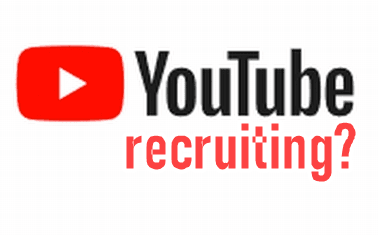Ask The Headhunter online began publication a long time ago. The newsletter launched soon after. This Q&A column marks the 900th edition of the newsletter — that’s 900 weeks of free advice inspired by the best questions asked by the Ask The Headhunter community. To mark the occasion, I’m reprinting a column from 2003 about the best interview question ever. It has withstood the test of time, and it could not be more relevant or applicable today. I hope you find it as helpful as many others have.
Question
What is the single best interview question ever — and the best answer?
Nick’s Reply
 There used to be a book titled something like 2,800 Interview Questions & Answers. Even today, you can find books that will automate your job interviews with canned repartee. These books feature 701 interview questions (and “best answers), or 201, or 189, 101 — or, How many interview questions you got???
There used to be a book titled something like 2,800 Interview Questions & Answers. Even today, you can find books that will automate your job interviews with canned repartee. These books feature 701 interview questions (and “best answers), or 201, or 189, 101 — or, How many interview questions you got???
All the interview questions
I’ve always had a fantasy about these books. You walk into the interviewer’s office. You smile broadly and shake hands:
“Glad to meet you! Let’s get down to business and have an interview!”
Then you slide one of those babies across the desk.
“Here are all the questions you’re going to ask me… and the answers! Now you know what they are, and I know what they are, and we don’t need to waste our time. So we can do something useful, and talk about the work you need to have done!”
Instead of teaching job candidates and hiring managers to talk shop — that is, about the job — career experts outdo themselves regurgitating job-interview scripts.
The silly answers they offer are rehashed and marinated in expired creative juices, and about as satisfying as a bolus coughed up by the last person who interviewed with the manager.
One Interview Question
Then there’s the “one, the only, the best interview question” designed to be so clever that you must think it’s also smart. The trouble is, these click-bait offerings have nothing to do with the job you’re interviewing for!
Lately, these include (on LinkedIn) Lou Adler’s “What single project or task would you consider the most significant accomplishment in your career so far? and (on Inc.com) economist Tyler Cowen’s “What are the open tabs in your browser right now?” (We won’t even get into the perennial “What’s your greatest weakness?” or ” How many golf balls would fit in the Empire State Building?”)
In 2003, the editors of Fast Company magazine put together a cover story titled, “All The Right Moves: A guide for the perplexed exec.” It was a collection of 21 Q&As for managers covering everything from how to be a star at work, how to be an effective leader and how to dress for success.
Editor Bill Breen asked me to write a “memo” to managers about Question #16: What is the single best interview question ever — and the best answer?
The best interview question
Here’s the memo I sent to Breen as it appeared in the July 2003 edition of Fast Company. Almost 20 years later, I’ll still put this question up against any list of interview questions (whether it includes 50, 200, or 2,800), or against any other “best, most important question” anyone has ever come up with. I think proof of its power is that job candidates can — and should — raise the question themselves and answer it to prove they’re worth hiring.
Memo From: Nick Corcodilos
To: Hiring managers everywhere
Re: Reinventing the job interview
The purpose of any interview is simple: to determine whether the candidate can do the job profitably. A smart interview is not an interrogation. It’s not a series of canned questions or a set of scripted tests that have been ginned up by HR. An interview should be a roll-up-your-sleeves, hands-on meeting between you and the candidate, where all of the focus is on the job.
Think of the interview as the candidate’s first day at work, with the only question that matters being this:
“What’s your business plan for doing this job?”
To successfully answer that, the candidate must first demonstrate an understanding of the company’s problems, challenges, and goals — not an easy thing to do. But since you desperately want to make a great hire and get back to work, why don’t you help the best candidate succeed? Two weeks before the interview, call up the candidate and say the following:
“We want you to show us how you’re going to do this job. That’s going to take a lot of homework. I suggest that you read through these 10 pages on our Web site, review these publications from our marketing and investor-relations departments, and speak with these three people on my team. When you’re done, you should have something useful to tell us.”
This will eliminate 9 out of 10 candidates. Only those who really want the job will put in the effort to research the job.
At the interview, you should expect (or hope) to hear the most compelling question that any candidate can ask:
“Would you like me to show how your company will profit from hiring me?”
The candidate should be prepared to do the job in the interview. That means walking up to the whiteboard and outlining the steps that he or she would take to solve your company’s problems. The numbers don’t have to be right, but the candidate should be able to defend them intelligently. If the candidate demonstrates an understanding of your culture and competitors — and lays out a plan of attack for solving your problems and adding something to your bottom line — you have some awfully compelling reasons to make the hire.
But if you trust only a candidate’s past accomplishments, references, credentials, or test results, you still won’t know whether the candidate can do the job.
Recruiting is still — and always has been — about finding the best candidates. But the best candidate isn’t just the one who can answer that question. The best candidate is the person who brings it up and volunteers to answer it — and is ready to show you how they will do the job profitably.
Do the job in the interview
If you cannot do the job to win the job, then it doesn’t matter what tabs are open on your browser, what animal you’d be if you could be any animal, what your greatest accomplishment was, or where you see yourself in five years. There is certainly more to do in a job interview, and we can have a lot of fun with clever questions and rejoinders. But, if you cannot demonstrate, right there in the meeting, your business plan for how you will do the work, then you will not stand out — and you have no business in that job interview.
How Can I Change Careers? picks up where that Fast Company column leaves off. And it’s not just for career changers. It’s for anyone who wants to stand out in the job interview. The book explains why this “single best interview question ever” for hiring managers is also the single best question for candidates to bring up in the interview — and how to do it. (Fast Company says it’s “chock full of tips for the thorniest of job-hunting problems.”)
You be the judge of what counts in your job interviews: Does anything matter more than showing you can do the job? What are the best and worst questions you’ve asked or been asked?
Thanks to all in the Ask The Headhunter community for assembling here every week, and especially to those who have contributed questions and comments over the years! This website and the newsletter are successful because of the quality of discourse you bring every week! How long have you been a subscriber? If you don’t get the free weekly newsletter, please sign up for edition #901 and share this link with friends!
: :



 In the
In the  Nick, please look at the job posting below. Was this written by a computer? Why can’t employers just use common sense and plain English? If it was written by a computer, no wonder the jobs aren’t getting filled! Maybe it makes sense to you? Not me! Why not just say: “We need a school teacher?” That’s what the requirements are basically asking for but not directly saying.
Nick, please look at the job posting below. Was this written by a computer? Why can’t employers just use common sense and plain English? If it was written by a computer, no wonder the jobs aren’t getting filled! Maybe it makes sense to you? Not me! Why not just say: “We need a school teacher?” That’s what the requirements are basically asking for but not directly saying. As you point out, in many kinds of work there are legitimate, specialized vocabularies. For example, in technical jobs like engineering, information technology, and medicine — among others — insider jargon has specific, well-defined meaning. It serves as shorthand for complex ideas.
As you point out, in many kinds of work there are legitimate, specialized vocabularies. For example, in technical jobs like engineering, information technology, and medicine — among others — insider jargon has specific, well-defined meaning. It serves as shorthand for complex ideas. Employers are so out of it that they’re not only putting up digital roadblocks against people they’re trying to attract — such as online application forms and
Employers are so out of it that they’re not only putting up digital roadblocks against people they’re trying to attract — such as online application forms and  This cannot be reconciled with the idea that an employer is trying to attract you. When you’re an abstraction in a database — a mess of keywords — the assumption is that you’re to be avoided and feared, either as a waste of time or, in this case, as a physical threat.
This cannot be reconciled with the idea that an employer is trying to attract you. When you’re an abstraction in a database — a mess of keywords — the assumption is that you’re to be avoided and feared, either as a waste of time or, in this case, as a physical threat.


